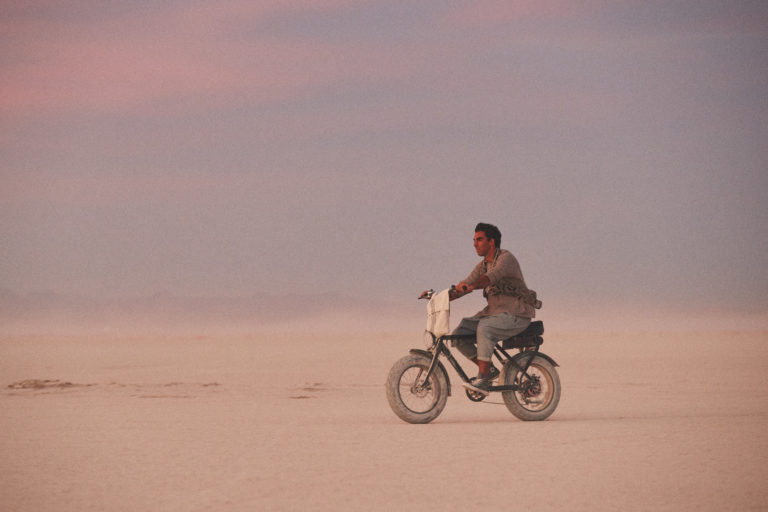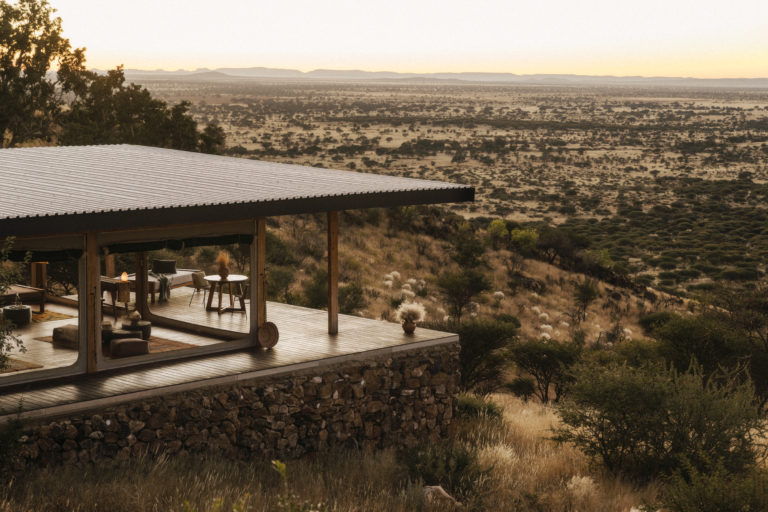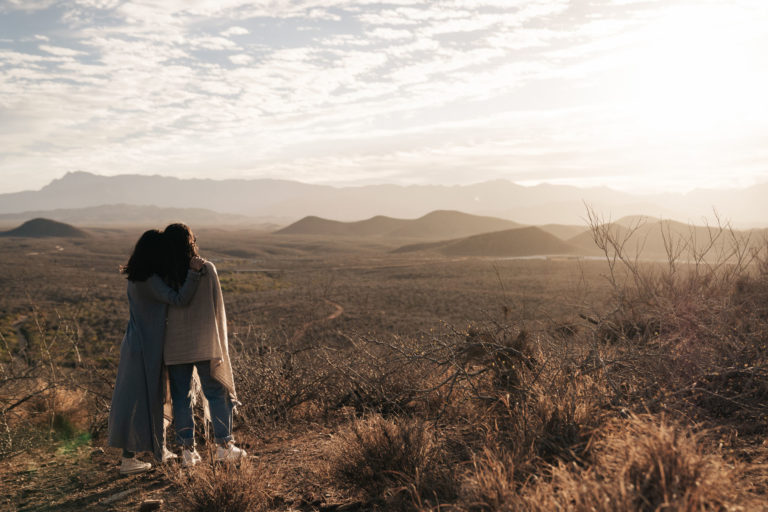Designing for Change
To have a vision for the future, we must first have a clear grasp of what direction we are going. When we navigate life with a set of values and beliefs, a guiding light illuminates our path. Clarity, staying true to the journey, and walking with integrity along the way allows us to reach goals with authentic success. Our co-founder, Kfir Levy, is determined to do just that.
From a young age, Kfir was inspired by the principles of design, particularly the concept of balance between aesthetics and function. After completing studies in Art & Design, he spent the first decade of his career successfully creating and leading companies in the tech space as well as apparel design and manufacturing. In 2011, life’s happenings would lead him to create Nomad Luxe, a company specializing in designing and manufacturing luxury outdoor products.
During his time with Nomad Luxe, Kfir came to understand that people’s profound desire for meaningful, beautiful, and comfortable experiences in nature superseded the must-have feeling for the products themselves. After coming to terms with the growing potential for human impact, he pivoted the company to focus on event production and began developing a passion for immersive experiences over the course of several years. However, it was one new acquaintance that would change the trajectory of his professional and personal lives.
Thanks to an introduction from his wife Melissa, Kfir met musician and fellow creative Eduardo Castillo, finding in him a friend and business partner equally dedicated to inspiring change in people’s lives. This meeting would be the start of Habitas’ journey and the creation of a global community.
Shared values and a vision for leadership that goes beyond the ordinary are what fueled the creation of Habitas. Six years since the opening of our Home in Tulum, our brand has witnessed tremendous expansion to remarkable corners of the world—everywhere from the blue lagoon of Bacalar to the ancient desert of AlUla. Kfir’s area of expertise—design and manufacturing—plays one of the most essential roles in maintaining the heart of who we are: an experience-led hospitality brand that puts people and our planet first.
The first aspect Kfir has attempted to achieve with our Habitas design philosophy is letting the beauty of nature speak for itself. Kfir explains, “When we design a space, we look to see how we can do it with the least amount of impact on the land as possible. We will never compete with nature, and no property we’ll ever build will be more beautiful than it was on the day we arrived. From a design perspective, we have to consider how much are we taking away from the very thing that brought us here while showing people that they don’t need as much as they think.”
Building on the concept that less is more, Kfir explains that the human aspect of our design philosophy looks to “seed behavioral change and awareness in people without discomfort.” He hopes guests will return home with a renewed vision of living life after experiencing an alternative take on luxury. “How can I show people that there is a different way to experience luxury, eat food, turn on the air conditioner, and use the toilet in a way that they will then take that idea back with them? That is ultimately the biggest inspiration.”
Over the years, Kfir has used his unique vision to challenge how hotels are conceived, designed, and built. Looking to the future, he wants to continue to rethink every aspect of design to ensure sustainability and responsibility through the construction process, and well into long-term operations. “In the coming years, I hope to prove you can completely rethink infrastructure and traditional construction, build with minimal impact and not compromise the guest experience.”
When developing in beautiful and remote places around the world, the lack of proper infrastructure often stresses the environment and the local community. Kfir’s job is to use design to break the business-as-usual trend and implement innovation that will create a level of self-sufficiency on our property and inspire change in the destination. For him, each new project requires a rigorous process of pushback and solution-based problem-solving with our Design, Development, and Operations teams to work within the business plan and push the boundaries of how things are done.
Take waste management as an example. On the surface, many destinations appear to offer options for waste disposal and recycling, but businesses and individuals frequently do not question third-party solutions’ methods or facilities. For Kfir, it is our responsibility to reconsider respectfully.
“If we’re going to build 70 to 100 rooms, bring guests in from all over the world, and produce all of this waste, we must not in good conscience assume that because someone is picking it up that it’s going to be dealt with responsibly. By doing things differently, you get pushback, but there is no choice. We can’t just assume that everything will be okay,” he tells us.
When local solutions do not make the cut, Kfir may go back to the drawing board to design a holistic solution for the hotel operations’ end-to-end waste production needs. This may include building a full waste management facility on the property and making sure the operation is properly staffed to manage it responsibly and effectively. In the end, it is decisions like these, propelled by committed leadership, that set us apart from other hospitality brands.
Two concepts play an integral role in Kfir’s ability to justify these new ways of doing things. One is value engineering, which he describes as “maximizing the value of something to make it feasible,” and the other is impact engineering, which “challenges aspects of the design to minimize impact during construction and through operations.” In our upcoming Home in Todos Santos, a prime example is the use of incinerating toilets, which are designed to eliminate the need for water or drainage systems.
“People might ask why we’re putting in expensive toilets instead of a cheaper option. But if you look at it that way, they’re not considering the additional infrastructure that’s going into the ground—the sewer lines, trenching, heavy equipment, labor, and so on—that add so much implicit cost to that cheaper toilet” explains Kfir. “Part of value engineering is being able to make a case study and show that we can consolidate and invest in the more expensive toilets instead of spending more on all of the areas of construction required to deliver a cheaper, common toilet, which is far more environmentally harmful and impactful.”
Coming full circle with Kfir’s design philosophy of seeding behavioral change, these significant adaptations to traditional infrastructure offer guests the opportunity to re-examine everyday activities, even sitting on the toilet, while living an unforgettable experience.
With growth and expansion comes our ability to reach more people. Ultimately, the Habitas community—the like-minded individuals who choose to participate in our experiences—is at the heart of our transformation over time. Kfir welcomes this growth and offers a unique perspective on why hospitality is an “overlooked opportunity” when inspiring change.
He tells us, “When traveling at this level, everyone shows up as the best version of themselves. You’re happy and excited. Your guard is down. If we, Habitas, have the privilege to receive people who appear that way, it’s an honor and joy. At scale, it becomes a matter of responsibility. What do we want to do with it? We must consider the number of people that show up at our doors this way—so ripe for idea exchange, malleable, and ready for new thoughts, conversation, and experiences. It’s what seeds a broader change.”
Living one’s purpose, as beautiful and effortless as it may sound, is a challenge we all face, be it the struggles of daily life or the mechanics behind running a business. It takes constant reminders and a community to remain steadfast. Kfir is the first to admit this, but he is also sincere in his hopes to keep the same course crafted by a set of core values years ago.
When asked what he would tell himself moving forward, he responded, “Don’t lose sight of why you started this—the purpose behind it—and let that continue to steer the decisions you make.” With that wise reflection, Kfir and his vision remind us that leading by example, and choosing to live with integrity, is the least we can do.



